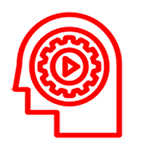Human Behavior
Introduction:
Human Behavior. Understanding human behavior is pivotal in colorful aspects of life, from particular connections to professional trials. Human behavior encompasses a wide range of conduct, studies, and feelings displayed by individualizes and groups. In this composition, we’ll claw into the description, propositions, and characteristics of human behavior, slipping light on its complications and significance in society.
Definition of Human Behavior
Human Behavior. Human conduct refers back to the range of movements, reactions, and cognitive methods displayed via people and companies in exceptional conditions. It encompasses both aware and subconscious behaviors, motivated by means of diverse internal and outside elements, inclusive of genetics, surroundings, way of life, and stories.
At its core, human behavior encompasses everything from simple reflex movements to complex decision-making processes. It entails how individuals have interaction with one another, how they perceive and interpret their surroundings, and how they adapt to one of a kind occasions.
Theories Explaining Human Behavior
Numerous theories had been proposed to provide an explanation for human behavior, each presenting unique perspectives and insights into the complexities of human nature. Some outstanding theories encompass:
Behavioral Theory:
This proposition posits that human behavior is discovered via exertion and underpinning. It emphasizes the function of environmental factors in shaping conduct and indicates that actions can be modified through prices and corrections.
Cognitive Theory:
Cognitive theorists’ consciousness on how inner mental tactics, including perception, reminiscence, and problem-solving, influence conduct. They believe that people actively method data from their surroundings, main to precise behaviors.
Social Learning Theory:
Building upon behavioral and cognitive standards, social studying principle emphasizes the importance of remark and modeling in mastering conduct. It suggests that people research by way of watching others and imitating their actions, specially the ones they perceive as function models.
Psychoanalytic Theory:
Proposed by Sigmund Freud, the psychoanalytic principle emphasizes the position of unconscious conflicts and drives in shaping conduct. It shows that conduct is prompted via unconscious goals, childhood reports, and defense mechanisms aimed at coping with inner conflicts.
Humanistic Theory:
Humanistic theorists’ attention on the innate force for self-actualization and private growth. They accept as true with that people attempt to meet their potential and achieve private achievement, guided by way of their unique reports and values.
Characteristics of Human Behavior
Human behavior exhibits several key characteristics that distinguish it from other forms of behavior:
Complexity:
Human behavior is inherently complex, encouraged through a myriad of internal and external elements. It is regularly difficult to predict and understand absolutely due to its multifaceted nature.
Variability:
Human conduct varies substantially amongst individuals and agencies, fashioned by way of elements along with culture, upbringing, persona, and social context. What motivates one person may not always encourage another, highlighting the variety of human experiences.
Adaptability:
Humans show a top-notch ability to evolve their conduct to specific situations and environments. This adaptability allows people to navigate complicated social dynamics, conquer challenges, and thrive in numerous circumstances.
Subjectivity:
Human behavior is subjective, encouraged by using character perceptions, beliefs, and reviews. What one character perceives as perfect or proper can be regarded differently by using some other, main to variations in behavior.
Influenceability:
Human behavior is prone to steer from diverse resources, such as peers, authority figures, media, and societal norms. Individuals may additionally comply with social expectations or undertake behaviors modeled through others, now and then unconsciously.
FAQs about Human Behavior
Q: Can human behavior be changed?
A: Yes, human behavior may be changed via numerous method, along with training, remedy, and environmental interventions. However, converting behavior often requires concerted effort and might take time.
Q: How do genetics have an impact on human conduct?
A: Genetics play a large function in shaping human conduct, influencing tendencies together with temperament, intelligence, and susceptibility to certain mental health conditions. However, genetics have interaction with environmental elements to supply complicated patterns of conduct.
Q: What is the position of lifestyle in human conduct?
A: Culture drastically affects human behavior with the aid of shaping norms, values, and social expectations. Cultural practices and ideals impact how people understand themselves and others, as well as the ways they interact inside their communities.
Conclusion
Human Behavior. Understanding human behavior is essential for fostering meaningful connections, promoting particular growth, and addressing societal challenges. By exploring its description, propositions, and characteristics, we gain perceptively into the complications of mortal nature and the factors that shape our conduct and opinions. Through continued exploration and reflection, we can further unravel the mystification of human behavior and harness its eventuality for positive change in the world.

